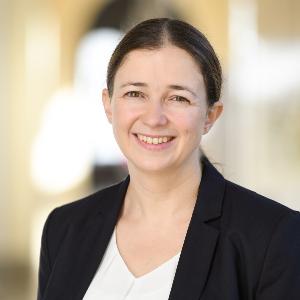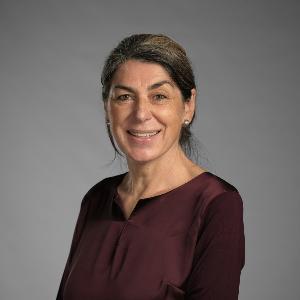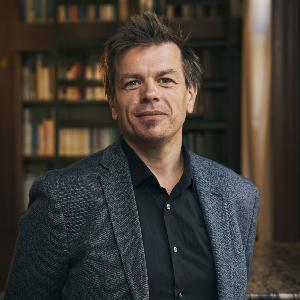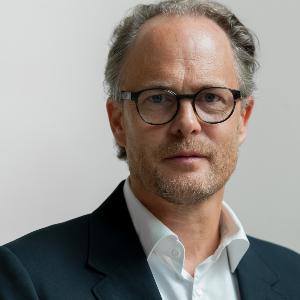FokusLMU: Scientific perspectives on “deglobalization”
4 Nov 2024
On November 12, the next panel discussion will take place in the FokusLMU series. This time, the topic will be “The changing world: (de)globalization today and yesterday”.
4 Nov 2024
On November 12, the next panel discussion will take place in the FokusLMU series. This time, the topic will be “The changing world: (de)globalization today and yesterday”.
Pandemic, recession and war. The world has been in crisis mode for several years now. More and more people are asking themselves the question: Is globalization reaching its limits?
Three academics from LMU Munich shed light on this complex topic from different perspectives. Using data as well as historical and current examples, they will explore the question of whether deglobalization is even possible.
Tuesday, November 12, 2024
19:00 - 20:30
in the Great Hall in the main building of the LMU and as livestream
No registration is required for the event in presence.
Translated with DeepL.com (free version)

Professor Claudia Steinwender | © LMU ECON
“Deglobalization is a much-discussed topic - but are we actually experiencing it? In recent years, there have been many events that have had a negative impact on global trade: Brexit, the trade conflicts of the Trump era, the coronavirus pandemic and, finally, Russia's attack on Ukraine and the subsequent sanctions. After decades of opening up and free trade agreements, especially in the EU, new challenges are now looming. However, despite these crises, the trade data shows a slowdown in growth rather than a decline - often referred to as 'slowbalization'. The reasons for this slowdown are complex and range from skepticism about distribution inequality, the resilience of global supply chains and geopolitical dependencies to national security concerns.”
Prof. Dr. Claudia Steinwender is Professor of Economics with a focus on innovation and foreign trade at LMU.

Professor Eveline Dürr | © IDK-Uni Augsburg/LMU
“The strength of ethnology lies in the investigation of cultural interpretations of global connectedness in the past and present. What relationships do individuals establish between local and global and how do these interpretations influence their lifeworlds and constructions of meaning? How do they perceive the relationship between place and mobility? And how can the resulting, often unforeseen dynamics be described? In the lecture, I will explore these questions using the examples of Aotearoa New Zealand and Latin America and look at (de)globalization through a socio-ecological lens. Environmental changes caused by colonial structures, among other things, still have a far-reaching social impact today and influence cultural identities, accompanied by the desire for limitation and distinction, but also for connection and commonality. Non-human entities (animals, plants) also play an important role in these processes and demand that we rebalance our relationship with them.”
Prof. Dr. Eveline Dürr is a professor of ethnology specializing in ethnological urban research, human-environment relations, mobility, cultural identities and representations.

Professor Roland Wenzlhuemer | © Lambert Strehlke
“The idea of deglobalization falls short if one understands globalization as a product of complex global interdependencies. Globalization not only means increasing worldwide connections, but also always entails disentanglements and disruptions. Not only, but especially in times of crisis - such as the
interwar period or the coronavirus pandemic - show that global connections cannot simply be severed or reversed. Rather, we are experiencing an interplay of entanglement and disentanglement, which we at the Käte Hamburger Center for Advanced Study in the Humanities global dis:connect describe as 'dis:connectivity'. This term illustrates the interdependence of connectivity and disruption and helps us to better understand and shape globalization processes.”
Prof. Dr. Roland Wenzlhuemer is Professor of Modern and Contemporary History with a focus on colonial and global history.

Professor Arndt Brendecke | © LMU
“I have been studying the Spanish Empire for a long time. Its territories were so far apart that in this empire the proverbial “sun never set”. The vast oceans could be technically overcome by shipping and with the help of letters, but societies slowly but surely grew apart. What's more, many contemporaries took advantage of the opportunities offered by distance. They made political capital out of the fact that others were far away, that they could favor their own group and label the more distant group as 'foreign' and thus devalue them. Over the incredibly long period of four centuries, the Spanish Empire can therefore be used to study how cohesion was emphasized and consolidated on the one hand and questioned and undermined on the other.”
Prof. Dr. Arndt Brendecke is Professor of Early Modern History at LMU.
FokusLMU events are held in German. A recording with English subtitles will be published on YouTube one week after the event.
FokusLMU is supported by MEDIASCHOOL BAYERN and Münchener Universitätsgesellschaft e. V.